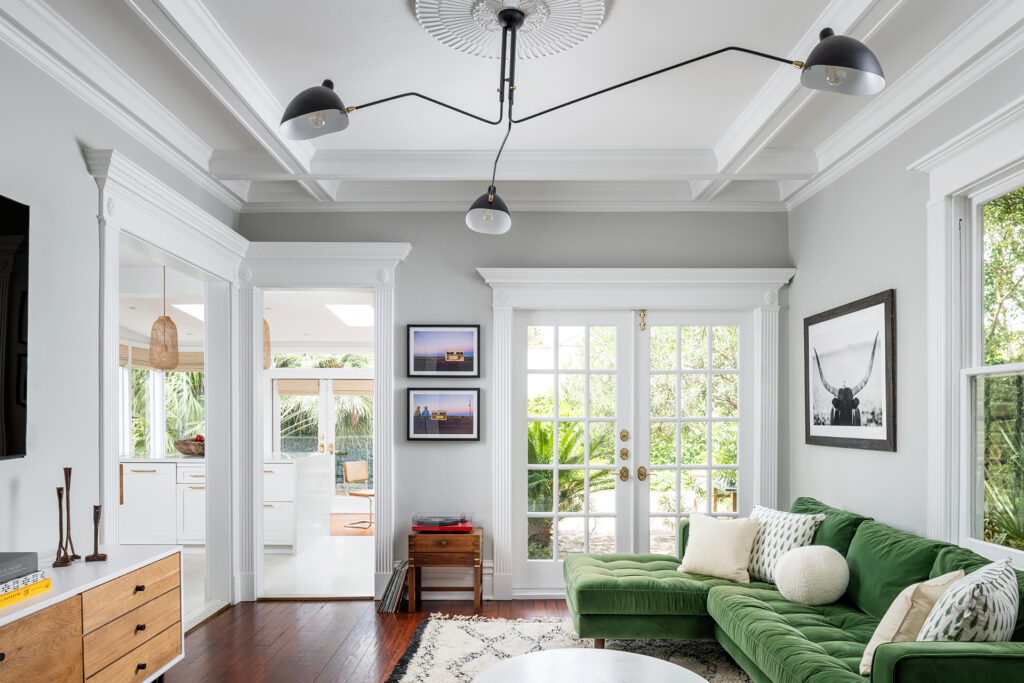Budgeting for home repairs is one of the most crucial steps to take when it comes to preventative maintenance. Without getting your repair budget in order, you may run into some problems down the road that could have been easily avoided.

Rather than letting your repairs build up to the point where you need a major home improvement project, it’s best to start small and implement preventative measures. By getting in the habit of taking care of these smaller projects as they arise, you can keep potential issues at bay for years to come.
If you are looking for a quick project you can handle on your own, here are a few things to consider:
- Keep track of the small problems that arise in your home. When something goes wrong with appliances or fixtures in your house, write it down and keep an eye out for when these repairs need to be made. If they crop up again before you’re able to fix them, it’s time to take action.
- Be proactive about problem areas in your home. Some issues are bound to arise over the years that you can expect, but be sure to pay attention for any signs of trouble before they become big problems. For instance, if there is a leaky faucet or a draft in your home, it’s best to take care of the problem before water damage or mold starts growing.
- Test out DIY projects when you can. As long as you are careful and thorough about checking for safety concerns, smaller repairs like these are a great way to see if they are something that will make sense for your budget.
- When you do need to hire a professional, be sure that they give you an estimate and stick with it. There is nothing more frustrating than needing expensive repairs but not being able to afford them because of hidden costs or overage fees. Get everything in writing and check all the figures before signing off on any project.
While these tips may seem like a lot of work at first, they can save you money and stress down the road. By being proactive about your home’s repairs rather than waiting until something goes wrong to take action, you will be able to stay on track with preventative maintenance.
How much should you spend on your home repairs?
A lot of people will try to figure this out on their own, but the truth is that most professionals recommend starting with $500 per month for smaller repairs and projects.
What are some examples of home improvement projects?
- As long as you take precautions about safety concerns and get everything in writing, there’s no limit to what you can do. Here are a few ideas for inspiring your own projects:
- Fixing minor plumbing problems
- Painting the inside of your home
- Updating appliances and fixtures around your house
How to get started with preventative maintenance?
Start small but be proactive when it comes to potential issues that crop up in your home. Keep track of the little problems that arise, making sure to fix them before they become bigger issues. When you do need to hire a professional for more complicated projects, be sure that they give you an estimate and stick with it so there are no surprise costs or overage fees down the road.
Plan Everything Accordingly
It is important to be prepared for home repairs. Before you even start thinking about what your budget might look like, it’s crucial that you plan everything accordingly and get the proper tools and materials ready in case something happens. If something does happen unexpectedly, then at least you will already have all of these supplies on hand so that there isn’t a delay in fixing the problem.

Take a look at your home and how it is built with an eye to potential future problems that might arise from wear and tear, weather damage or general neglect. Having these things prepared will help you when something does happen because you won’t have to scramble around trying to figure out what kind of materials are needed.
Find The Right People For The Job
If you are going to be doing the repairs yourself, make sure that you have done your research.
- Stay away from hiring people simply because they offer a low price.
- Find somebody who is fully licensed and insured. This can help if there happens to be any damage while fixing your home or during construction work on site at your house.
- If you do not feel comfortable doing the repairs yourself, find somebody who is fully licensed and insured to take care of it for you. Check their references carefully before making a final decision on hiring them to make sure they are the right fit for your project.
Sell Anything You’re not Using
One of the best ways to increase your budget for home repairs, especially if you are planning on hiring a professional contractor or handyman to do some work in your home is by selling any unused items around your house. This includes tools that you no longer use, sports equipment like skis and golf clubs (or any other activity gear), clothing, and even furniture.
How to Cut Down on Home Repair Costs?
Preventative maintenance is one of the best ways to ensure that you’re not spending a lot on costly home repairs each year. The more preventative measures you take, the less money it will cost down the road when bigger problems arise. Follow these simple tips for cutting down on your next home repair bill:
- Have an HVAC specialist check your furnace and air conditioner annually to make sure that they are in proper working order. If you find yourself having to replace the unit every few years, it may be time for an upgrade.
- Schedule regular maintenance appointments with your plumber each year. They will inspect all of the fixtures inside of your home (shower heads, sinks etc.) to make sure that they are working properly. Replacing small parts on your fixtures can be much cheaper than having the entire fixture replaced when it breaks down completely.
- Schedule an appointment with a roofing specialist like RoofPro once every other year to get rid of any mildew or mold build up before it becomes more serious. Treating the mildew early on will prevent it from deteriorating to a point where you need complete roof replacement which can get very costly, fast.
- Have your heating and cooling ducts cleaned out once or twice per year depending on how often they are used in your home. The dirtier the air is inside of these vents, the harder your HVAC system will have to work which can lead to costly breakdowns in the future.
- Have a home inspector come through and give your house a once over every few years, just in case small problems start popping up that you might not be able to detect on your own. If something does happen down the road, it will be easier to identify the source of your problem when you have an expert come through and diagnose it with you.
- If small problems start popping up in your home, like a leaky faucet or cracked window, fix them right away before they get worse. You’ll save yourself some money on larger repairs down the road if you take care of these smaller problems when they first arise.
- If you are having trouble keeping up with all the repairs around your house, it may be time to consider an upgrade or selling and buying a new home altogether. You will cut down on repair costs in the long run if you make sure that whatever you buy is in good shape before you move in.
- If you’d like to reduce the amount of repairs and maintenance needed on your home, then consider installing energy efficient appliances that will cut down on the cost of heating and cooling your living space. These appliances work by recycling heat or air from inside of a room back into another part of the house which means you don’t have to run your furnace or air conditioner as much.
- Replace standard light switches with dimmer switches throughout the house for a more energy efficient lighting solution that will reduce the amount of electricity needed each month. The less you use, the less it costs!
